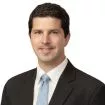- within Compliance, Consumer Protection, Government and Public Sector topic(s)
| This is the latest in the series titled “NPE Showcase,” where we discuss high-volume non-practicing entities (or as some call them, “patent trolls”). This installment will focus on a court where many patent trolls file suit, the U.S. District Court for the District of Delaware. |
Delaware has long been a home to corporations across the country. With its low taxes and sophisticated courts, corporations find solace by incorporating in “The First State” even if they never step foot within its confines.
The Supreme Court's TC Heartland case altered the game of forum shopping when it held a corporation “resides” only within its state of incorporation for purposes of venue. This caused the already busy District of Delaware to accept even more patent cases as plaintiffs scurried to avoid venue challenges in other forums. As of this year, approximately 22% of all patent cases are filed in the District of Delaware.
The situation presented even more challenges when Chief Judge Leonard P. Stark was elevated to the Federal Circuit on March 17, 2022. Judge Stark had presided over the third most patent cases in the country (Judge Albright of W.D. Texas and Judge Gilstrap of E.D. Texas being one and two, respectively). The court is well equipped to handle its caseload even with Stark's departure, but it had big shoes to fill in doing so.
Enter now-Chief Judge Colm F. Connolly, who rose to the occasion by entering several standing orders for the management of patent cases. Parties must now rank their summary judgment motions and, “barring exceptional reasons determined sua sponte by the Court,” the court will not consider motion no. 2 if motion no. 1 is denied. Judge Connolly enacted a similar albeit somewhat different rule for Daubert motions, clearly attempting to avoid abusive motion practice and the “shotgun” approach to litigation.
What about NPEs? It is no surprise that many of the cases filed in Judge Connolly's districts are from nonpracticing entities, and many of these entities receive outside funding. Judge Connolly issued a rule meant to limit the burden of litigation finance discovery and require the disclosure of “The identity, address, and, if a legal entity, place of formation of the Third-Party Funder(s)” among other disclosures.
This rule recently caused friction when Judge Connolly pressed a recent NPE owner for details relating to the entity. The owner was ordered to appear in person despite residing in Waco, Texas, and offered few details regarding the company he allegedly owned. The owner was not involved in naming the NPE, paid nothing for its patents, and only learned about settlements after the fact. The hearing itself was tense and resulted in many objections from the plaintiff's attorneys, hoping to avoid the revelation of protected information about the NPE.
Judge Connolly's standing order is meant to reduce the burden of discovery while simultaneously improving transparency. Given the reaction to this hearing by the Plaintiff's bar, it may also help to reduce the caseload in the overburdened District of Delaware.
The content of this article is intended to provide a general guide to the subject matter. Specialist advice should be sought about your specific circumstances.
[View Source]

